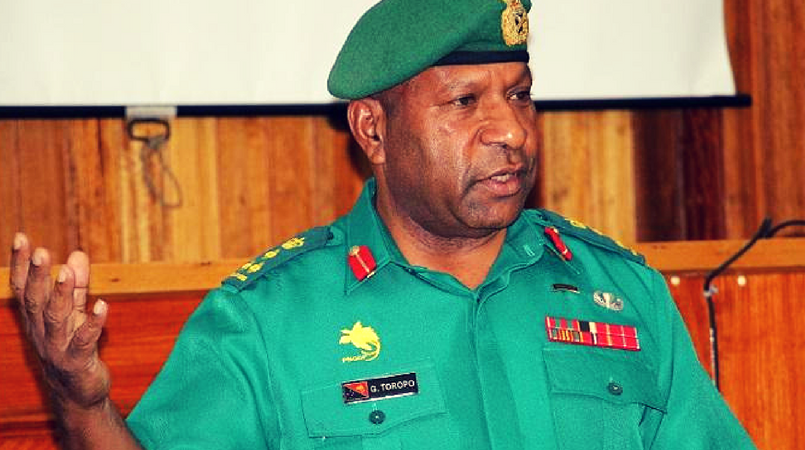
The Papua New Guinea Defence Force cannot implement the 2013 white paper, let alone achieve some of its aims, until such a time when the budget improves.
Under the current circumstances, where commodity prices are being affected by the world market, the PNGDF have aligned their priorities to make sure their core activities, such as border patrol, response to national disasters, maritime surveillance, response to internal security issues and preparations for APEC Leaders’ Summit, are given precedence.
The 2013 white paper is a 76-page document that outlines key and main focus areas to help build new capabilities, which also requires huge funding and commitments.
PNGDF Commander, Brigadier-General Gilbert Toropo, stated that PNGDF does not consider the 2013 white paper as a failed mission.
“If we try to concentrate on implementing the white paper, we wound off the funds to carry out our other important core activities.
“I don’t consider it a failed task as we have committed our funds to make sure that our main functions are carried forward.”
Despite the white paper not being able to achieve some of its set priorities in developing PNGDF’s capability of increasing manpower to 5,000, and a Defence white paper office as well as a resource and development division structure by 2017, Toropo states that the PNGDF has committed its resources to matters of precedence.
“We might fail our core activities by not providing effective border patrols or not supporting the police in provisions of internal security, like the LNG security in Hela and law and order issues up in the highlands,” said Toropo.
“That is why we have deliberately deferred the implementation of the white paper because resources and funding have been very limited.
“The white paper should not be considered as a failed task. We have dedicated limited resources to where it matters most.”
Since 2014, the PNGDF has strengthened established programs as well as introduced a number of projects and activities, and increased bilateral relationships with its partners.
Some of these include;
- Growing the PNGDF manpower from 2,300 to almost 4,000 personnel
- Rehabilitation of assets; especially of CASA aircraft and landing crafts which have not been operational
- Ensuring that ongoing and increased border patrol activities are consistent
- Re-establishment of the Joint Forces College
- Defence Force Retirement Benefit Fund
- Defence home ownership scheme
- PNGDF leadership framework
- Bilateral partners’ assistance with donations, trainings and exercises
Toropo said as opposed to four years ago, the lack of funding was used as an excuse for the lack of manpower along the borders.
“As we speak, we have manpower on the ground, along the border both on the Northern and Southern side of the border between Indonesia and PNG.”
